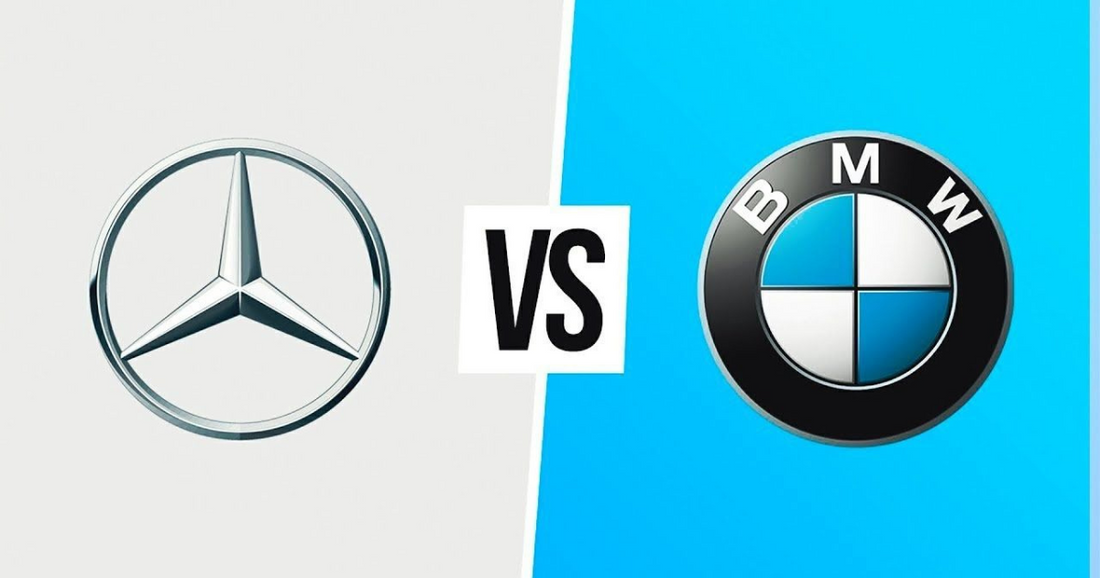
Mercedes vs Bmw
The Long Fight Between the Brands: BMW vs Mercedes
For decades, two German giants have stood at the pinnacle of the automotive world: BMW and Mercedes-Benz. With every model launch, each brand has sought to outdo the other—not just in performance, luxury, and innovation, but in the hearts and minds of drivers around the world. Their rivalry has become more than just a corporate competition; it’s a clash of philosophies, lifestyles, and driving experiences. As the dust of decades of innovation and marketing battles settles, one question remains: which brand truly comes out on top?
Let’s break down the legendary battle and discover why BMW ultimately claims the crown.
The Origins: Heritage vs Innovation
Mercedes-Benz boasts a history that can be traced back to 1886, when Karl Benz built the world’s first automobile. This gives the brand a special place in history—a pioneer of the very industry we now know. Mercedes quickly became synonymous with luxury and prestige, dominating the upper class of the automotive world.
BMW, on the other hand, was founded in 1916 and originally focused on aircraft engines. It wasn’t until later that it shifted to automobiles. While it entered the car game a little later, BMW brought something fresh—a youthful, performance-driven approach. Where Mercedes stood for refinement and comfort, BMW aimed to connect man and machine more intimately.
Driving Philosophy: The Comfort Cruiser vs The Ultimate Driving Machine
Mercedes-Benz has always championed luxury, comfort, and smoothness. Their cars feel like gliding clouds, enveloping passengers in opulence. Their slogan "The Best or Nothing" reflects their focus on premium engineering, often prioritizing comfort over performance.
BMW’s philosophy is fundamentally different. "The Ultimate Driving Machine" is not just a tagline—it’s a mission. Every BMW, from a base 3 Series to a high-performance M model, is designed with driving pleasure in mind. Their focus on handling, balance, and driver engagement puts the person behind the wheel at the center of the experience.
This distinction is crucial. While Mercedes may pamper its driver, BMW excites them.
Performance Battles: M Power vs AMG
When it comes to high-performance divisions, BMW M and Mercedes-AMG are two of the most respected names in the game.
-
Mercedes-AMG vehicles are brute-force machines—powerful engines, aggressive looks, and straight-line dominance.
-
BMW M cars are precision instruments—lightweight designs, balanced chassis, and razor-sharp handling.
On paper, AMG might sometimes boast more horsepower. But ask any driving purist and they’ll tell you—BMW M cars offer a more connected, responsive, and rewarding experience on the track and the road alike. They’re not just fast—they're thrilling.
Innovation & Technology: Quiet Revolution vs Bold Evolution
Mercedes-Benz often leads with new technology. They introduced early versions of ABS, traction control, and even advanced self-driving systems. The S-Class has always been a technological flagship for the industry. But while Mercedes innovates boldly, many of its features are geared toward comfort and assistance rather than engagement.
BMW, while not always the first to market, integrates technology with a focus on driving feel. Their iDrive system revolutionized in-car interfaces. Their adaptive suspensions, rear-wheel drive dynamics, and laser lights aren’t just gimmicks—they enhance how the car drives.
In recent years, BMW has also taken the lead in electrification with the i sub-brand, offering models like the i4 and iX, which blend sustainability with driving enjoyment—something Mercedes struggles to balance as it transitions to EQ models that often feel less dynamic.
Brand Image and Lifestyle
Mercedes-Benz is associated with prestige, wealth, and maturity. A Mercedes driver is often perceived as someone who has "made it" and seeks recognition. It’s aspirational, but in a more traditional sense.
BMW has crafted a younger, sportier, and more energetic image. Its vehicles appeal to those who view driving as more than a commute—it’s a passion. BMW doesn’t just sell cars; it sells an attitude. That’s why it resonates so strongly with driving enthusiasts, creatives, and those who want to express a bit more edge.
Just look at social culture: BMWs, especially M models, are revered in automotive communities across TikTok, YouTube, and Instagram. They inspire builds, modifications, and art in ways Mercedes rarely does.
Motorsports Legacy: A Track-Proven Winner
When it comes to motorsports, BMW's legacy runs deep—particularly in touring car championships and endurance racing. The BMW M3 and M4 have become icons on both the street and the track, earning a cult-like following for their driving prowess.
While Mercedes has had success in Formula 1, its road cars often feel a bit disconnected from the motorsport experience. BMW, by contrast, brings its track experience to its street cars in tangible ways—steering feedback, suspension tuning, and weight distribution all benefit from racing know-how.
A lap in a BMW feels like a chapter from its racing history. That authenticity resonates with drivers worldwide.
Resale Value, Reliability, and Ownership
While both brands are premium and come with high maintenance costs, BMW has made great strides in recent years to improve reliability and reduce ownership costs. Certified pre-owned programs and improved dealer experiences have made BMW ownership more accessible and enjoyable.
Resale values of popular models like the BMW 3 Series and X5 often hold up better than their Mercedes counterparts, due in part to continued demand among younger buyers and enthusiasts.
The Verdict: BMW Wins the Brand War
Mercedes-Benz deserves immense respect. It’s a brand with class, history, and excellence. But when it comes to inspiring passion, delivering dynamic performance, and connecting with the modern driver, BMW takes the lead.
-
BMWs are not just machines; they’re experiences.
-
They don’t just transport—you become part of the drive.
-
Whether you’re behind the wheel of a classic E30 M3 or a futuristic i8, there’s a sense of precision, purpose, and personality that Mercedes simply can’t replicate.
The long battle between the two brands has seen many victories on both sides. But in 2025, the crown sits firmly on BMW’s head. With a perfect blend of heritage, innovation, driver engagement, and cultural relevance, BMW has emerged not just as a car manufacturer—but as the ultimate driving brand.
